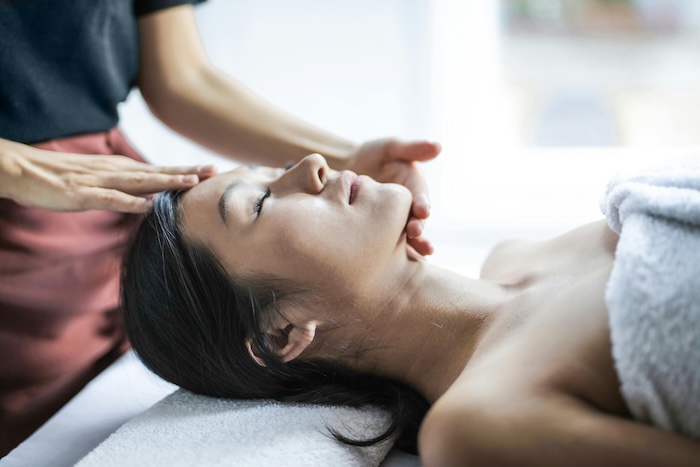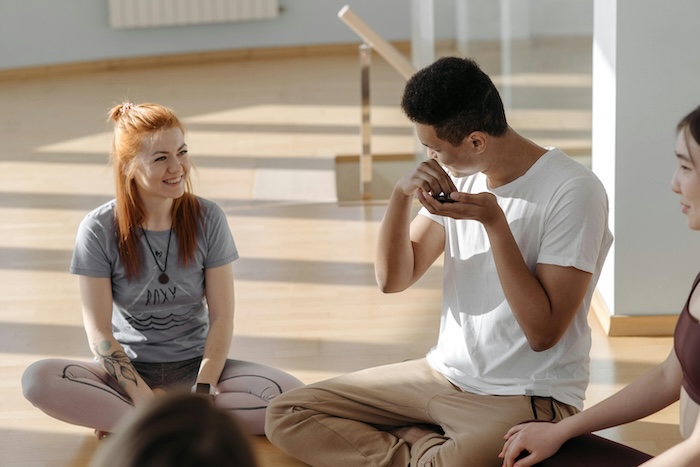1. Practice Mindfulness Meditation
Mindfulness meditation encourages you to focus on the present moment, helping to reduce anxiety caused by overthinking the past or future. Studies have shown that mindfulness can significantly lower stress levels and improve mental clarity.
How to start: Set aside 10–15 minutes daily for mindfulness exercises. Apps like Headspace or Calm can guide you through the process.
Also, if you feel you can't meditate, our personal recommendation is to try active meditation. You can find support about this with our friends from The World of Meditation
2. Engage in Regular Physical Activity
Exercise isn’t just good for your body; it’s a powerful tool for your mind. Physical activity releases endorphins, which act as natural stress relievers and mood enhancers.
Tip: Activities like yoga combine movement and mindfulness, making them particularly effective for anxiety relief.
3. Explore the Benefits of Platonic Cuddling
Human touch is essential for emotional well-being, and platonic cuddling offers a natural way to reduce anxiety. Physical contact stimulates the release of oxytocin, often called the "cuddle hormone," which promotes feelings of safety and relaxation.
At Embrace Club, we specialize in cuddle therapy as part of our holistic offerings. Through safe, professional sessions, you can experience the therapeutic benefits of touch in a comfortable environment. Explore if professional cuddling is right for you.
4. Try Craniosacral Therapy
Craniosacral therapy is a gentle, hands-on technique that can help alleviate anxiety by releasing tension in the body. It focuses on the craniosacral system, which includes the membranes and cerebrospinal fluid that surround the brain and spinal cord.
How it works: A trained therapist uses light touches to release restrictions in the craniosacral system, promoting relaxation and reducing the physical symptoms of stress. Many people find this therapy particularly effective for calming the nervous system and restoring balance.
You can talk directly to craniosacral therapists here
5. Try Herbal Remedies
Nature provides several herbal remedies known for their calming effects:
- Chamomile: A soothing tea before bed can ease nighttime anxiety.
- Lavender: Known for its relaxing properties, lavender oil can be used in diffusers or as a pillow spray.
- Ashwagandha: This adaptogen helps regulate stress hormones.
Consult with a healthcare professional before incorporating herbal supplements into your routine.
6. Build a Consistent Sleep Routine
Poor sleep is both a symptom and cause of anxiety. Prioritize quality rest by creating a sleep-friendly environment and maintaining a consistent bedtime schedule.
Tips for better sleep:
- Avoid screens an hour before bedtime.
- Use blackout curtains and keep your room cool.
- Try relaxation techniques like deep breathing before sleep.
7. Connect with a Supportive Community
Feeling connected to others is vital for mental health. Whether through a support group, a hobby club, or a community like Embrace Club, being part of a nurturing environment can provide emotional support and reduce feelings of isolation.
Remember, at Embrace Club, our forum is a hub of valuable insights and dedicated support for our community. Sign up for free.




